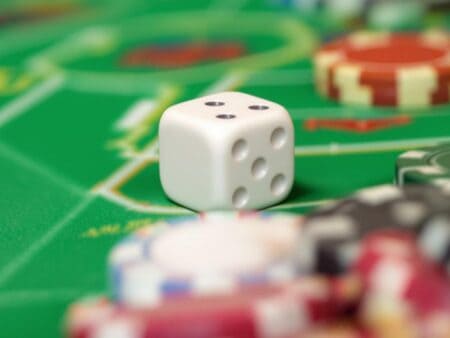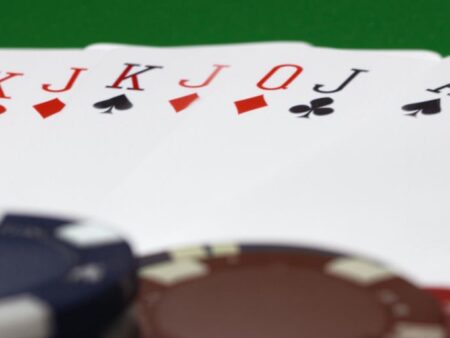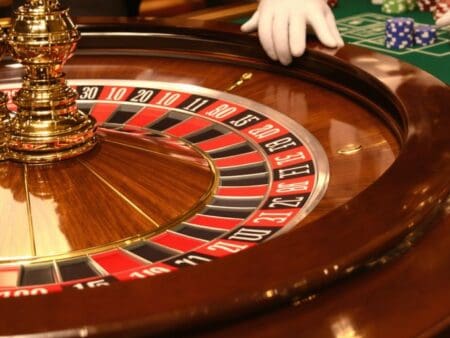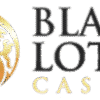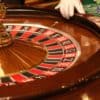So, you’ve heard the stories, right? The ones about people who gambled everything away. It sounds wild, almost like something out of a movie. But for many, it’s a harsh reality. We’re talking about folks who truly lost everything gambling on Reddit, sharing their raw experiences. This isn’t just about money, it’s about lives turned upside down, relationships shattered, and the tough road to getting back on track. It’s a look at what happens when a bit of fun spins completely out of control.
Key Takeaways
- Gambling often starts as an escape, but it quickly becomes a trap.
- The effects of gambling go far beyond just losing money; they mess up relationships and mental health.
- Relapses are a real and tough part of recovery, showing how strong the addiction can be.
- Being honest with loved ones, even when it’s scary, is a big step toward healing.
- Online communities, like those on Reddit, offer a lot of support and practical tips for recovery.
The Allure and the Abyss: Why Gambling Becomes an Escape
Gambling’s pull is strong, promising quick wins and easy money. But for many, it quickly spirals into something much darker. It’s not just about the money; it’s about the feeling, the escape, the illusion of control. The initial wins can be intoxicating, but the losses? They can be devastating, leading down a path of desperation and ruin. It’s a dangerous game, and understanding why it becomes an escape is the first step to breaking free. Some people even think that online casino with daily bonus is the only way to play.
Chasing the High: The Initial Wins and the Subsequent Losses
That first win, that rush of adrenaline, it’s unlike anything else. It feels like you’ve cracked the code, that you’re smarter than the system. But that high is fleeting. The losses start to pile up, and you find yourself chasing that initial win, trying to recapture that feeling. Each loss fuels the next bet, a desperate attempt to break even. It’s a vicious cycle, and it’s hard to stop when you’re convinced the next win is just around the corner. I’ve seen people lose everything chasing that dragon.
Gambling as a Coping Mechanism for Life’s Stressors
Life can be tough. Work, relationships, finances, it all adds up. For some, gambling becomes a way to escape those pressures. It’s a distraction, a way to forget about your problems, even if just for a little while. The focus shifts from real-world worries to the game at hand. It’s a dangerous form of self-medication, though. Instead of addressing the root causes of stress, gambling only masks them, often making them worse in the long run. It’s like putting a band-aid on a broken leg. Some people even use sweepstakes casinos to escape.
The Illusion of Control: Believing You Can Win It All Back
One of the most dangerous aspects of gambling is the illusion of control. You start to believe you have a system, a strategy, that you can predict the outcome. You analyze the data, study the odds, convinced that you’re on the verge of a breakthrough. But gambling is, at its core, a game of chance. The house always has the edge, and no amount of skill or strategy can change that. This false sense of control keeps people hooked, even as they lose more and more. It’s a powerful delusion, and it’s hard to shake. It’s easy to think you can get fast online casino Cash App payouts and win it all back, but it’s rarely the case.
Gambling addiction isn’t about a lack of willpower. It’s a complex issue with deep roots in psychology and brain chemistry. It’s about chasing a feeling, escaping reality, and believing in a lie. Understanding these underlying factors is crucial for both prevention and recovery.
The Devastating Ripple Effect: Beyond Financial Ruin
Gambling addiction doesn’t just drain your bank account; it sets off a chain reaction that can destroy almost every aspect of your life. It’s like a wrecking ball swinging through your relationships, your mental state, and your overall sense of security. The fallout is often far more extensive and painful than just the monetary losses. It’s a deep, pervasive kind of damage that takes a long time to heal, if it ever fully does.
Strained Relationships and Broken Trust
Trust is the bedrock of any relationship, and gambling addiction erodes it completely. Imagine constantly lying to your partner about where the money is going, hiding debts, or even stealing to fuel the addiction. It creates a chasm of distrust that’s incredibly difficult to bridge. Spouses, family members, and friends often feel betrayed, used, and deeply hurt. The emotional toll can lead to separation, divorce, and permanent estrangement. It’s not just about the money; it’s about the broken promises and the shattered faith in the person they thought they knew. It’s a sad situation, and it’s hard to watch it happen to people you care about.
The Erosion of Mental Health and Self-Worth
Gambling addiction takes a huge toll on your mental health. The constant stress of losing, the guilt of deceiving loved ones, and the shame of not being able to control the urge to gamble can lead to anxiety, depression, and even suicidal thoughts. Your self-worth plummets as you feel like a failure, unable to manage your life or your impulses. It’s a vicious cycle: you gamble to escape these feelings, but gambling only makes them worse. People often feel trapped, like they’re in a hole they can’t climb out of. It’s a dark place to be, and it’s important to seek help if you’re experiencing these feelings. It’s important to remember that online communities can help.
Loss of Possessions and Livelihood
It starts with small losses, but gambling addiction can quickly escalate to losing everything you own. Savings accounts are emptied, homes are mortgaged, and possessions are sold to chase the next win. People lose their jobs because they’re spending time gambling instead of working, or because they’re caught stealing from their employers to fund their addiction. The loss of financial stability creates immense stress and insecurity, making it difficult to provide for yourself and your family. The consequences can be devastating, leading to homelessness, bankruptcy, and a complete loss of the life you once knew. It’s a harsh reality, and it highlights the destructive power of this addiction.
The worst part is the feeling of helplessness. You watch as everything you’ve worked for slips away, and you feel powerless to stop it. The shame and regret are overwhelming, and it’s hard to see a way out. It’s a lonely and isolating experience, and it’s important to remember that you’re not alone. There are people who care and want to help you get your life back on track. Don’t be afraid to reach out and ask for it. It’s the first step towards recovery.
The Cycle of Relapse: When Recovery Falters
Relapse is a tough reality for many on the road to recovery. It’s not a sign of failure, but rather an indication that the recovery plan needs adjustments. It’s like hitting a bump in the road; you might stumble, but you can still get back on track. The important thing is to understand why it happens and how to deal with it.
The Unexpected Triggers That Lead Back to Gambling
Triggers can be anything: a stressful day at work, a memory of a past win, or even just boredom. It’s crazy how something so small can set off a chain reaction. Identifying these triggers is the first step. It’s like being a detective in your own life, figuring out what makes you tick, or in this case, what makes you gamble. Sometimes, it’s not even a negative emotion; feeling too good can also be a trigger. It’s like your brain is trying to recreate that high, that rush. Here are some common triggers:
- Financial stress
- Relationship problems
- Social isolation
- Exposure to gambling environments
The Shame and Despair of Repeated Losses
Relapse often comes with a heavy dose of shame and despair. It’s that feeling of "I can’t believe I did it again." The losses aren’t just financial; they’re losses of trust, self-respect, and hope. It’s easy to get caught in a downward spiral, where the shame leads to more gambling in an attempt to escape the feelings. Breaking this cycle requires acknowledging the pain and seeking support. It’s like admitting you’re lost in the woods; you can’t find your way out until you admit you’re lost.
Rebuilding After Multiple Setbacks
Rebuilding after multiple setbacks is possible, but it requires a different approach. It’s not just about stopping gambling; it’s about creating a new life, one that doesn’t rely on gambling for excitement or escape. It’s like tearing down an old house and building a new one from the foundation up. This might involve:
- Strengthening your support system
- Developing new coping mechanisms
- Setting realistic goals
- Practicing self-compassion
It’s important to remember that recovery is not a linear process. There will be ups and downs, good days and bad days. The key is to keep moving forward, one step at a time. Don’t let setbacks define you; let them be lessons that help you grow stronger.
It’s also important to consider crypto slots as a potential trigger, especially if past wins involved them. Similarly, understanding the risks associated with progressive jackpot slots can help prevent chasing unrealistic wins. Remember, seeking help and support is a sign of strength, not weakness. Don’t hesitate to reach out to friends, family, or a professional. You’re not alone in this fight. Consider also how platforms like Stake Casino might present challenges to maintaining recovery, and plan accordingly.
The Painful Confessions: Telling Loved Ones the Truth
The Fear of Judgment and Disappointment
Let’s be real, telling your family about a gambling problem? It’s terrifying. The fear of judgment is HUGE. You picture their faces, the disappointment, the lectures. It’s enough to make anyone want to keep it all bottled up. But secrets like this? They eat you alive. It’s like you’re carrying this massive weight, and it just gets heavier every single day. You start avoiding phone calls, making excuses not to visit. The guilt just compounds everything. It’s a vicious cycle. You know you need to tell them, but the thought of their reaction is paralyzing. It’s a tough spot to be in, no doubt about it.
Witnessing the Emotional Toll on Family
Okay, so you finally spill the beans. And then you see it. The hurt in their eyes. The confusion. The anger. It’s like you’ve physically wounded them. And in a way, you have. Gambling addiction doesn’t just affect the person doing it; it ripples out and destroys everyone around them. Seeing your mom cry? Your dad’s silent disappointment? It’s brutal. It’s a different kind of pain than the financial stuff. This is emotional. This is seeing the people you love most, hurting because of you. It’s a heavy burden to carry, and it can make the recovery process even harder. You start questioning everything. Are you even worth it? Can you ever make it up to them? It’s a dark place to be, but it’s important to acknowledge the damage done. It’s part of the healing process, even if it’s the hardest part.
Finding Support in Vulnerability
Here’s the thing: even though telling your loved ones is scary, it can also be the first step towards getting better. Vulnerability is key. When you open up and show your true self, flaws and all, you create space for genuine connection and support. It’s not easy, but it’s worth it. You might be surprised by the reaction you get. Maybe they’ll be angry at first, but eventually, they might come around. They might offer help you never expected. They might just listen without judgment. And that, in itself, can be incredibly powerful. Finding support isn’t just about getting advice; it’s about knowing you’re not alone. It’s about having people in your corner who believe in you, even when you don’t believe in yourself. It’s about building a network of love and understanding that can help you weather the storm. It’s a game changer, really.
Confessing to loved ones is a huge step. It’s not easy, and it’s not always pretty. But it’s a necessary part of the journey towards recovery. It’s about taking responsibility for your actions and allowing the people who care about you to help you heal. It’s about finding strength in vulnerability and building a support system that can sustain you through the tough times.
And remember, it’s okay to seek professional help too. A therapist or counselor can provide guidance and support as you navigate this challenging process. Don’t be afraid to reach out. There are people who care and want to help you get your life back on track. It’s a long road, but it’s a road worth traveling.
| Support Type | Description | Example |
|---|---|---|
| Emotional Support | Providing empathy, understanding, and encouragement. | Listening without judgment, offering words of affirmation. |
| Practical Support | Offering tangible assistance, such as financial help or help with tasks. | Helping with bills, providing transportation to meetings. |
| Informational Support | Sharing knowledge and resources related to gambling addiction and recovery. | Providing information about support groups, treatment options, and self-help strategies. |
Here are some steps to consider when telling loved ones:
- Choose the right time and place. Pick a moment when you can talk openly and honestly without distractions.
- Be prepared for a range of reactions. Not everyone will respond the way you hope, so be patient and understanding.
- Focus on your feelings and experiences. Use "I" statements to express how gambling has affected you and your relationships.
- Be honest about the extent of your problem. Don’t minimize or downplay the severity of your addiction.
- Ask for support and understanding. Let your loved ones know what you need from them to help you recover.
It’s a process, not a one-time event. Be prepared to have ongoing conversations and to work together to rebuild trust and repair relationships. And remember, you’re not alone. There are people who care about you and want to help you get better. Don’t give up hope. You can reclaim your life and build a brighter future. Consider seeking free slots with bonus features as a safer alternative to gambling. Remember, there are resources available to help you understand how much esport players make and make informed decisions.
Seeking Solace and Strategies on Reddit
Reddit, for many, becomes an unexpected haven amidst the chaos of gambling addiction. It’s a place where anonymity allows for raw honesty, and shared experiences create a sense of community that can be incredibly powerful. People find others who understand the unique hell they’re going through, and that alone can be a lifeline. It’s not a perfect solution, but it’s a start for many.
The Power of Shared Experiences in Online Communities
Online communities, especially on Reddit, offer a unique space for individuals struggling with gambling addiction. The anonymity allows people to share their stories without fear of judgment from their immediate social circles. This shared vulnerability creates a powerful sense of solidarity and understanding. It’s comforting to know you’re not alone in this fight. Reading about others’ struggles and triumphs can provide hope and motivation to keep going. It’s like a support group, but available 24/7.
Practical Advice for Blocking Access to Gambling Sites
One of the most practical benefits of these Reddit communities is the wealth of advice on blocking access to gambling sites. People share their experiences with different software, apps, and browser extensions designed to prevent access to these platforms. Some even discuss strategies for self-excluding from online casinos and sportsbooks. It’s a crowdsourced approach to finding the most effective tools for staying away from temptation. It’s about taking control, one step at a time. You can find gambling addiction support on these forums.
Finding Hope and Encouragement from Strangers
Perhaps the most surprising aspect of these Reddit communities is the genuine hope and encouragement that strangers offer each other. In a world where gambling addiction can feel incredibly isolating, these online interactions can be a source of light. People celebrate each other’s milestones, offer support during relapses, and provide a listening ear without judgment. It’s a reminder that recovery is possible, and that there are people who care, even if they’re just usernames on a screen. It’s about finding free spins no deposit USA casino alternatives and focusing on recovery.
Reclaiming a Life: Steps Towards Lasting Recovery
Implementing Self-Exclusion and Financial Safeguards
Okay, so you’ve hit a wall. You’re ready to actually do this thing. First up? Seriously limiting access. Self-exclusion programs are a big deal. They let you ban yourself from casinos and online gambling sites. Think of it as a digital fence. It’s not foolproof, but it’s a solid start.
Then, there’s the money thing. It’s time to get real about finances. Consider giving control of your accounts to someone you trust. It’s hard, I know. But it can stop you from mobile slot machines in a moment of weakness. Set up barriers. Make it difficult to access funds. It’s about creating space between you and the temptation.
Prioritizing Mental and Physical Well-being
This isn’t just about stopping gambling. It’s about building a life you don’t need to escape from. That means taking care of yourself. Seriously.
- Exercise: Even a walk around the block helps. It releases endorphins, which can combat those gambling urges.
- Sleep: Get enough. Seriously. Lack of sleep messes with your decision-making.
- Nutrition: Eat real food. Avoid processed junk that messes with your mood.
- Mindfulness: Meditation, deep breathing, whatever works. Learn to sit with your feelings without acting on them.
Taking care of your mental and physical health is not a luxury; it’s a necessity. It’s the foundation upon which you rebuild your life. It’s about finding healthy ways to cope with stress and triggers, so you don’t turn back to gambling.
The Long Road to Financial and Emotional Stability
Let’s be real: this is a marathon, not a sprint. There will be setbacks. There will be days when you want to give up. But you can’t.
Financial recovery takes time. You might be dealing with debt. You might have damaged your credit. It’s overwhelming, but it’s not insurmountable. Create a budget. Seek financial counseling. Start small, and celebrate every victory, no matter how small.
Emotional stability? That’s even trickier. You’re dealing with shame, guilt, and regret. It’s important to forgive yourself. It’s also important to acknowledge the pain you’ve caused others. Rebuilding trust takes time and consistent effort. Be patient. Be honest. Be willing to make amends. Remember, you are trying to beat this now.
The Unseen Scars: Living with the Aftermath
Gambling addiction doesn’t just vanish once the last bet is placed. It leaves behind scars, often invisible to the outside world, that can impact a person’s life for years to come. It’s about more than just money; it’s about the internal battles fought long after the financial crisis has passed. The journey to recovery is ongoing, with new challenges popping up when you least expect them. It’s a constant process of managing triggers, rebuilding trust, and finding a new sense of self.
Coping with Lingering Urges and Triggers
Even after periods of abstinence, the urge to gamble can resurface unexpectedly. These triggers can be anything: a specific smell, a certain time of day, or even just a feeling of boredom. Learning to identify and manage these triggers is a critical part of long-term recovery. It’s like learning to live with a chronic illness; you have to be constantly aware of your condition and take steps to prevent flare-ups. Some people find that avoiding certain places or activities helps, while others develop coping mechanisms like exercise or meditation. It’s a personal journey, and what works for one person may not work for another. The important thing is to be proactive and have a plan in place for when those urges inevitably arise. It’s not easy, but it’s possible to live a fulfilling life despite these challenges. You might find betting news helpful in understanding the triggers.
Rebuilding Trust and Repairing Relationships
One of the most devastating consequences of gambling addiction is the damage it inflicts on relationships. Trust is often shattered, and rebuilding it can be a long and arduous process. It requires honesty, transparency, and a willingness to make amends for past actions. It’s not enough to simply say you’re sorry; you have to demonstrate through your actions that you’re committed to change. This might involve attending therapy with your partner, being open about your finances, and consistently following through on your commitments. It’s also important to be patient and understanding, as it may take time for your loved ones to fully trust you again. Some relationships may not survive the strain, and that’s a painful reality to accept. However, for those that do, the process of rebuilding can lead to a stronger and more resilient bond.
Finding New Purpose Beyond the Addiction
Gambling often fills a void in a person’s life, providing a sense of excitement, escape, or control. When that is removed, it’s important to find new, healthier ways to fill that void. This might involve pursuing new hobbies, volunteering, or reconnecting with old passions. It’s about discovering what truly brings you joy and fulfillment, and building a life that is meaningful and purpose-driven. It’s also about redefining your identity and seeing yourself as more than just an addict. You are a person with talents, interests, and the capacity for growth. Embracing this new identity can be a powerful force in maintaining long-term recovery. It’s not about forgetting the past, but about creating a future that is brighter and more fulfilling than you ever thought possible.
The road to recovery is not linear. There will be setbacks and challenges along the way. The key is to never give up hope and to keep moving forward, one step at a time. Remember that you are not alone, and there are people who care about you and want to see you succeed. With perseverance and support, you can overcome this addiction and reclaim your life.
Conclusion
So, what’s the takeaway from all these stories? It’s pretty clear that gambling can really mess things up for people. We heard about folks losing their savings, their homes, and even their relationships. It’s a tough road, and it shows how quickly things can go wrong. But, there’s also a bit of hope in these stories. Many people are trying to get their lives back on track, and they’re finding support in different places. It’s a reminder that even when things seem really bad, there are ways to start over. It’s not easy, but it’s possible.
Frequently Asked Questions
Why do people get hooked on gambling?
Gambling can become a problem for many reasons. Sometimes, it starts as a fun way to pass the time or a quick way to make money. But for some, it turns into a way to escape from stress, sadness, or other tough feelings. The excitement of winning, even small amounts, can make people feel good and want to keep playing. This feeling can be very strong, making it hard to stop, even when they start losing a lot.
How does gambling hurt someone’s life, besides just their money?
Gambling can mess up a person’s life in many ways, not just their money. It can break trust with family and friends because of lies and secrets. People might lose their homes, jobs, or all their savings. It also hurts how they feel about themselves, making them feel sad, worried, or even hopeless. Their mind can get really tired from all the stress and worry.
Why is it so hard for people to stop gambling, even after they try?
It’s super hard to stop gambling once you’re really into it. Even after trying to quit, small things can make someone want to gamble again, like seeing a casino ad or feeling stressed. When they gamble again and lose, they feel even worse, full of shame and sadness. It’s a tough cycle to break, and it often takes many tries to truly stop for good.
What makes it so hard to tell family and friends about a gambling problem?
Telling loved ones about a gambling problem is scary. People worry their family will be mad, disappointed, or judge them. They might hide it for a long time because of this fear. But when they finally do tell the truth, it can be the first step to getting help. Seeing how much their problem hurts their family can be a strong reason to change. Sharing their struggles can also help them find support and understanding.
How can online groups like Reddit help people dealing with gambling problems?
Online communities, like those on Reddit, can be a huge help. People there share their own stories, which makes others feel less alone. They can get ideas on how to stop gambling, like using special apps to block gambling sites or setting up rules for their money. Getting kind words and encouragement from strangers who understand can give them hope and strength to keep trying.
What are the steps to getting better from a gambling problem?
Getting better from a gambling problem is a long journey. It means taking steps like signing up for programs that ban you from gambling places or using tools to control your money. It’s also important to take care of your mind and body, like getting enough sleep, eating well, and finding new hobbies. Slowly but surely, people can start to fix their money problems and feel better about themselves, building a new, healthier life.



